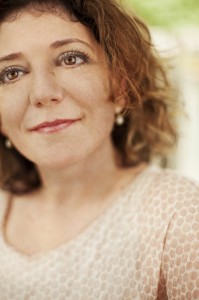Katie Steedly’s first-person piece [The Unspeakable Gift] is a riveting retelling of her participation in a National Institutes of Health study that aided her quest to come to grips with her life of living with a rare genetic disorder. Her writing is superb.
In recognition of receiving the Dateline Award for the Washingtonian Magazine essay, The Unspeakable Gift.
Enter your email here to receive Weekly Wide-Awake
Robert Lawrence Smith and Truth

“Truth is whatever satisfies the soul.”
Walt Whitman
“Truth” is chapter 4 in Robert Lawrence Smith’s A Quaker Book of Wisdom. Smith explains that truth is a fundamental tenant of Quaker Life. Truth, and how to define it and find it in our world, is a timely topic. Quakers believe our truth is our Devine spark. The view that the truth, as the book of John suggests, will set you free sits alongside the desire for simplicity in Quaker teaching. Smith states, “There is nothing so liberating as speaking the truth from your heart, nothing so empowering as believing in what you say – and in having others perceive you as truthful.” Truth is a journey of continual deliberation between ourselves and our world, not a singular event or destination to which we easily arrive. Amidst fear of conflict, truth is hard to live. Knowing our truth may stand in direct opposition to another’s truth, makes truth hard to live, too.
Truth In Groups
Quakers have a process they call a “query” that they practice to find truth in the Meetings. Queries address a variety of issues. Collective agreement is called “the sense of Meeting.” Deliberation toward a sense of Meeting can be a long process, especially if the issue being debated is contentious and friends are asked to sit in silence and “seek divine guidance.” If no clear sense of Meeting is achieved in a meeting, the issue is carried over to another Meeting and the query is continued. The process of reaching a sense of Meeting is as important as the decision itself, according to Smith.
Individual Truth and Query
We can learn from the Quaker understanding of truth. The centrality of truth to the Quaker way of life is instructive. Truth is a guide for decisions. Truth is both an individual and collective process. Truth can be simple to know and difficult to live. Whitman’s suggestion that truth satisfies the soul requires think deeply about truth. It asks us not to rest on a simple right and wrong, or retreat to moral relativism, or kick reflection to the curb of life. That seems right to me. What if the our still small voice guided our decisions? What if consensus built on truth becomes as common as conflict built on power? That is the soul of truth.
About Katie

From Louisville. Live in Atlanta. Curious by nature. Researcher by education. Writer by practice. Grateful heart by desire.
Buy the Book!
The Stage Is On Fire, a memoir about hope and change, reasons for voyaging, and dreams burning down can be purchased on Amazon.





